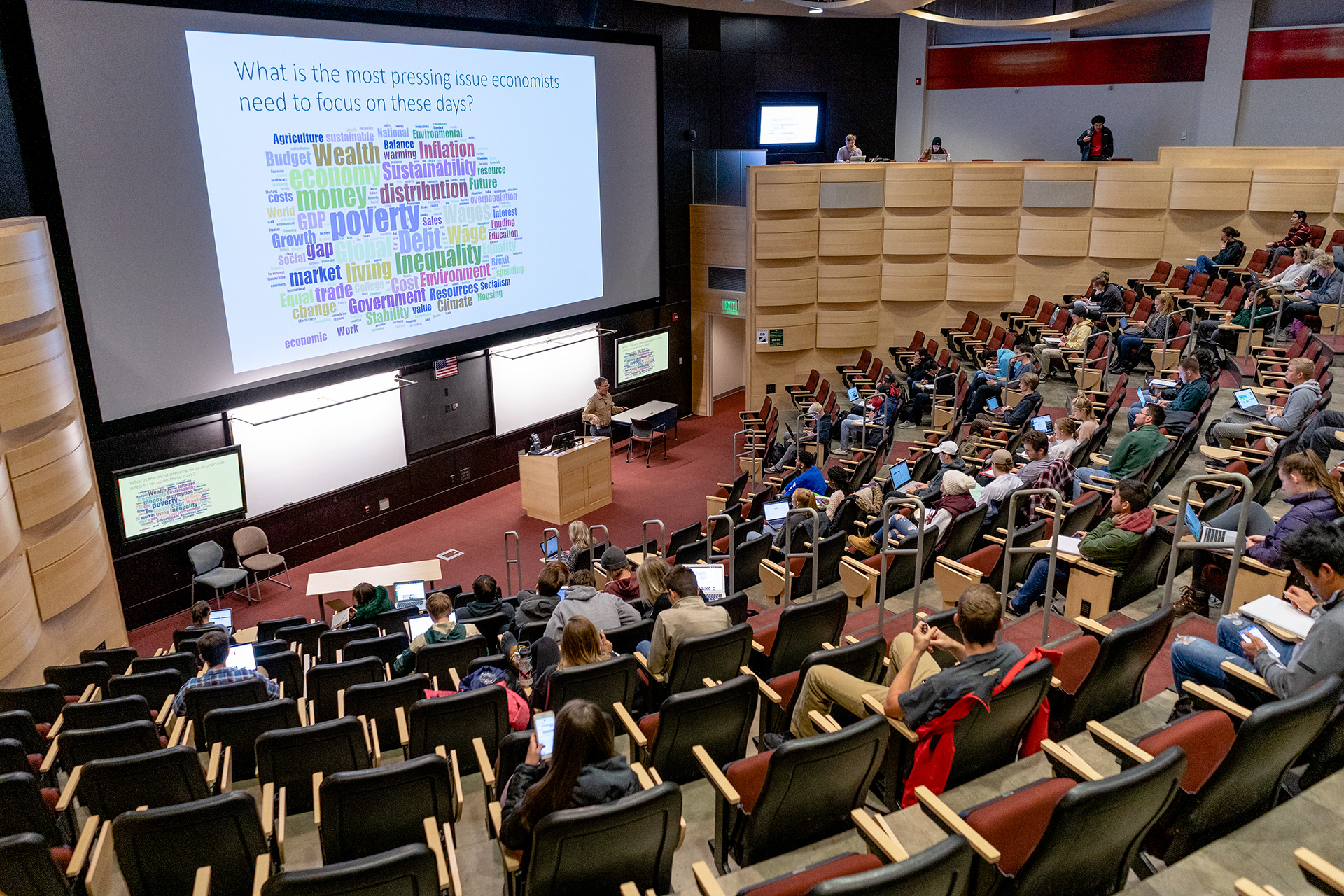
Undergraduate

Ways to Earn a B.A.
We offer several options to earn your bachelor’s in economics, including a traditional on-campus experience, enhanced honors studies, an accelerated program to complete the degree in 3-3.5 years, and a 100% online option. Explore each option below.
Graduate with an honors scholar designation through the enhanced honors program involving more rigorous coursework and a small learning community that you would typically experience at small liberal arts colleges.
Graduate with the flexibility of earning your degree online. Courses are taught by the same faculty who teach on campus, and online credits are the same as on-campus student credits.
Accelerated Master’s Program –
BA + MPPA
Earn Your Bachelor’s and Master’s Degrees in Five Years
Maximize your time at CSU by earning two degrees in as little as five years. The Accelerated Master’s Program (AMP) allows students to earn a Bachelor of Arts in Economics and a Master of Public Policy and Administration (MPPA) in as little as five years.
The MPPA is a professional master's degree that prepares students for leadership in international organizations, government agencies, and nonprofits.
Major vs. Minor
Whether you choose to major or minor in economics, both programs require the same math, microeconomics and macroeconomics sequences, plus electives. Majors take just four more courses. Most of our students choose the economics major for its added benefits and career potential.


Martin Shields
- Professor
- Director of Undergraduate Studies
Internships
CSU has a unique opportunity for economics majors to work with faculty on real-world research projects that will help prepare you for many career paths and/or graduate studies. Once you’ve met the requirements, apply for a part-time Undergraduate Research Internship to further develop your skills. These are paid positions with a competitive hiring process. You may also choose to pursue an internship outside of CSU.
Tutoring Help
The Economics Tutoring Center is open Monday - Thursday from 11 am - 4 pm in Clark C 322 Tutoring is available at no cost on a walk-in basis for the following courses:
- ECON 202 Principles of Microeconomics
- ECON 204 Principles of Macroeconomics
- ECON 304 Intermediate Macroeconomics
- ECON 306 Intermediate Microeconomics
- Additional course support may be available upon request
Prospective Students
If you are considering a major or minor in economics, contact our Recruitment & Enrollment Coordinator.
Current Students
To declare a major, please contact the College of Liberal Arts Academic Support Center in the button below. To declare a minor, contact Bruce Shields.